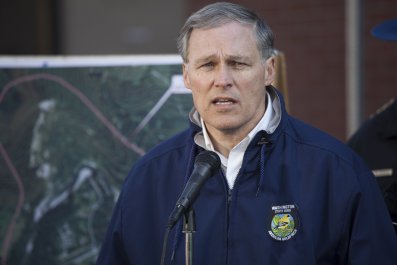The president was upset. Watching TV in his White House residence, his usual morning routine, Donald Trump saw his intelligence chiefs kick the legs out from under yet another of his pet campaigns: Iran. Trump and two of his top national security officials had been suggesting for two years that the Islamic republic was still in pursuit of a nuclear weapon and posed a mortal threat to its neighbors and the West.
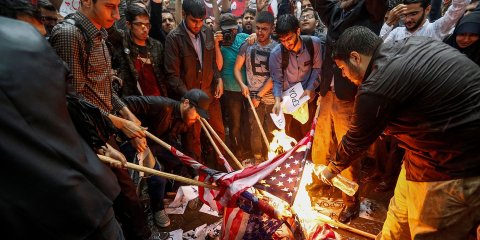
But now, Dan Coats, his national intelligence director, was in a Capitol Hill hearing room saying that wasn't true: Iran was living up to the letter of the deal the U.S. under President Barack Obama and five other nations had negotiated with the Middle Eastern country to dismantle its nuclear program, Coats said. Not only that, added CIA Director Gina Haspel, but Iran could well decide to restart the program if the sanctions that Trump had just reimposed—breaking America's end of the bargain—weren't lifted.
Trump took to Twitter. Coats and Haspel were "wrong," he posted on January 30. "Perhaps Intelligence should go back to school!" But he wasn't through with Iran. In extraordinary remarks with CBS and The New York Times over the next few days, Trump called Tehran "the number one terrorist nation in the world." He blamed the Islamic republic for "every single" problem he had inherited in the Middle East, a remarkable—and wholly unsupportable—assertion. He called his intelligence chiefs "extremely passive and naïve when it comes to the dangers of Iran."
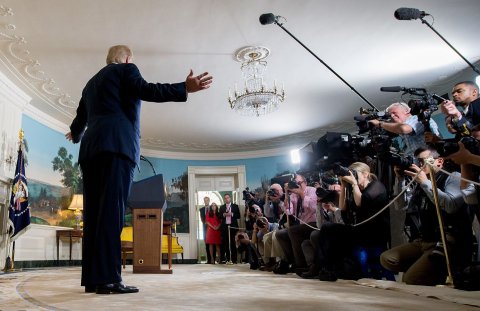
Trump then hinted at escalating covert activities against Iran or even a military confrontation. "I could tell you stories," he told the Times, "of things that we were going to do to them as recently as a week ago."
To many observers with long memories, Trump's comments were an eerie replay of a pivotal moment 17 years earlier, when another Republican president, George W. Bush, labeled Iraq part of an "axis of evil" that was on the threshold of building a weapon that would end in an Iraqi "mushroom cloud" over America. The following year, in 2003, Bush dispatched nearly 200,000 U.S. troops into Iraq in search of nuclear, chemical and biological weapons that turned out not to exist. Neither did Iraqi dictator Saddam Hussein's alleged connection with Al-Qaeda. What followed was a calamitous decade-long occupation that the U.S. and the entire Middle East are still struggling with.
Veteran Middle East hands worry Trump is steering America into yet another misguided regional disaster, this time with Iran. A longtime former top CIA operations officer compared Trump's misrepresentations about Iran to the lies a succession of presidents told to justify the war in Vietnam. "I don't want to overblow the Vietnam analogies, but we're in the process, from what I can see, of lying to ourselves and the American people about Iran," he tells Newsweek, speaking on terms of anonymity because he retains close ties to the agency. "It's not gonna attack us tomorrow. It's not gonna kill us tomorrow. It's not interested in direct confrontation with the U.S., despite the war of words."
"The more you push, the more they resist," says Chas Freeman, a former U.S. ambassador to Saudi Arabia. "And the more you overtly push and blunder, the more they can attribute every problem they have to you. So there's a sort of unholy partnership" between the Trump administration and Tehran's own hawks. The problem, he and other experts worry, is that Trump's blunders and Iranian overreactions could lead to a shooting war nobody wants.
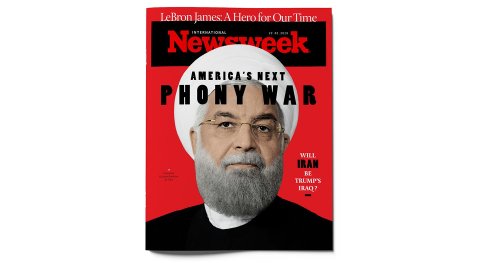
Destination Unknown
Trump's remarks, meanwhile, had former senior national security officials scratching their heads. Some told Newsweek that they're skeptical of Trump's hints that dramatic actions against Iran were considered. But close observers say the broad outlines of Trump's approach have been evident since he took office, when he renounced the nuclear deal. He seemed to be itching to open a new and dangerous chapter in a 40-year-long war of threats and dirty tricks, this one backed by U.S., and particularly pro-Israel, hawks. Freeman calls it "gesture foreign policy."
"You're showing your outrage, and you're making life difficult for the other party," he tells Newsweek. "It's not very purposive."
Trump's weapons include sanctions, support for anti-Iran exile groups and a free hand for Israel to attack Iranian outposts in Syria. The rest of his aggressive campaign amounts to a shadow war with Iran, covert actions that include social media manipulation of the kind Moscow wielded against the U.S. during the 2016 election.
Officials are happy to talk in general about their campaign to "make sure that Iran is not a destabilizing influence," as Secretary of State Mike Pompeo puts it, but otherwise decline to share details.
Such actions have been cheered by longtime Iran hawks, including three of Trump's most favored advisers: Pompeo, White House national security adviser John Bolton and presidential son-in-law Jared Kushner. Israeli Prime Minister Benjamin Netanyahu and Saudi Crown Prince Mohammed bin Salman, both close confidants of Kushner, have long lobbied for more aggressive U.S. policies toward Tehran, including direct military attacks on its nuclear, military and intelligence facilities.
The problem, say a wide variety of experts, is that for every escalation the Trump administration and its predecessors have levied on Iran, the regime has responded with its own threats—and violence. And no one, on either side, seems to know where the increasing tempo of attacks and counterattacks is headed.
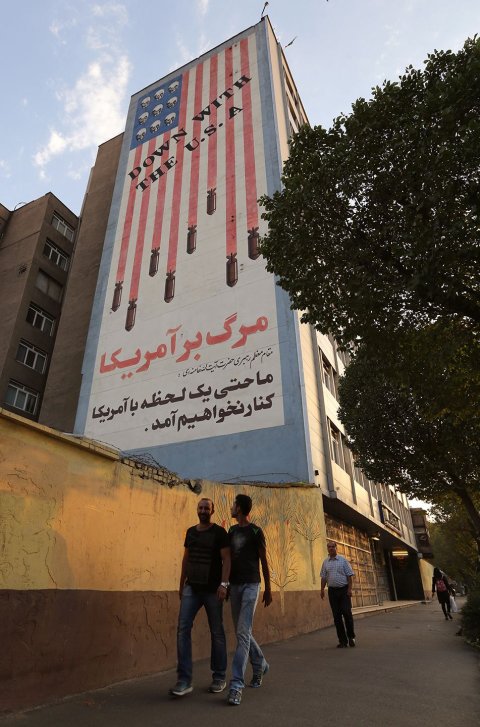
Trump tossed another barb and surprised regional allies when, in early February, he announced plans to keep troops in Iraq to monitor Iran. "We're going to keep watching," he told CBS, "and we're going to keep seeing, and if there's trouble, if somebody is looking to do nuclear weapons or other things, we're going to know it before they do." Iraqi President Barham Salih quickly slapped that down. "Don't overburden Iraq with your own issues," he told Trump through the news media. The U.S. is also pressuring electricity-starved Iraq to stop purchasing energy from Iran as part of new sanctions, further fraying relations with Baghdad.
All this just added confusion about what the Trump administration was planning—with potentially dangerous repercussions. "The U.S. has no idea what it wants, and Iran has no way to read Washington with all the mixed messages coming from the Trump administration," says Ali Alfoneh, an Iran analyst who is a senior fellow at the Arab Gulf States Institute in Washington, funded by Iran's arch-enemy Saudi Arabia.
Iran has engendered fear and fascination ever since Shiite cleric Ayatollah Ruhollah Khomeini returned from exile and led a broadly popular Islamic revolution in 1979. The overthrow effectively reversed a CIA-organized coup a quarter-century earlier that had toppled the socialist government of Mohammed Mossadegh on behalf of Anglo-American oil interests. Relations between Washington and Tehran further hardened when Iranian students stormed the U.S. Embassy and took more than 50 Americans hostage in a crisis that dominated television news coverage for 444 days. From then on, Iran was branded a rogue nation.
President Ronald Reagan designated the regime "a state sponsor of terrorism" and in 1981 threw his weight behind Iraq's invasion of Iran in a war that lasted nearly a decade and devastated the country. After Khomeini died in 1989, his successor, Ayatollah Ali .Khamenei, expanded Iran's regional influence, first by backing the Shiite Lebanese resistance to Israel's 1982 invasion, which led to the creation of the powerful Hezbollah militia that carried out terrorist attacks on U.S. targets. Then came the 2003 U.S. invasion of Iraq, which led to Iranian proxies assuming power in Baghdad. In 2011, when Syrian President Bashar al-Assad faced a popular revolt, Iran and Hezbollah provided critical support. On February 11, to mark the 40th anniversary of the revolution, Iranian President Hassan Rouhani gave a speech to tout the country's military might. "We have not—and will not—ask for permission from anybody for improving our defensive power," he said.
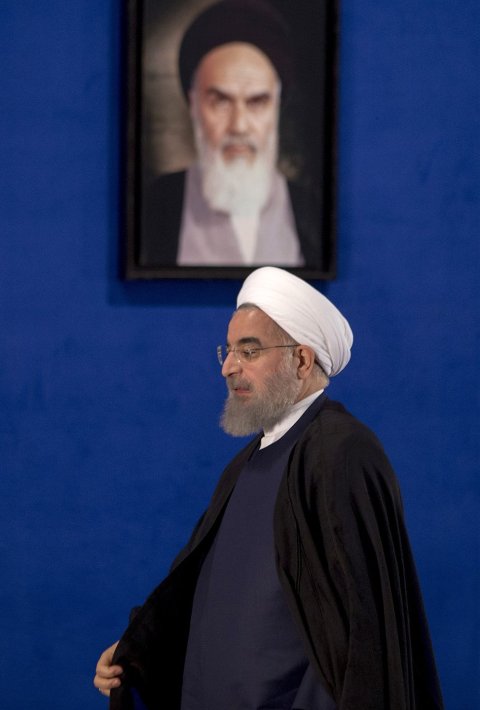
Trump's vows to contain Iran, which he views as more of a threat to regional and global security than ISIS, feel like a throwback to 1978. But Iran, too, seems to be "trying to turn the clock back to the bad old days of the 1980s and early 1990s," dispatching hit teams abroad to assassinate exile opposition figures, as Alfoneh wrote last fall for FDD's Long War Journal, a website run by the pro-Israel Foundation for Defense of Democracies.
The Long Arm of Tehran
After opening for business in 1980, Iran's spy agencies wasted no time liquidating the country's enemies at home and abroad. One of the early foreign operations of the Islamic Revolutionary Guard Corps, or IRGC, was the killing of an exile opposition leader just outside Washington, D.C. Taking a page from a famous scene in the 1975 spy thriller Three Days of the Condor, the assassin, an American recruit to the revolution who had taken the name Dawud Salahuddin, disguised himself as a letter carrier, rang the target's doorbell and fatally shot him when he answered.
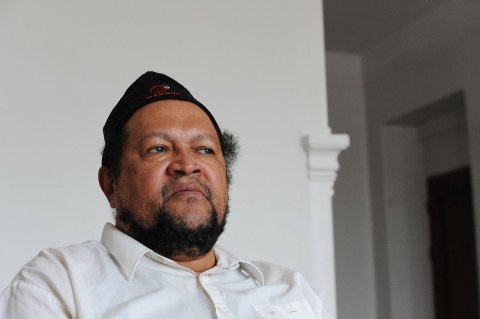
Tehran continued to pursue its enemies abroad in those early years, ruthlessly mowing down exile officials plotting to overthrow the regime. But after years of relative quietude, Iran's Ministry of Intelligence and Security has again stepped up attacks overseas. In 2015 and again in 2017, it was suspected of liquidating dissidents in the Netherlands.
The tempo and scope of attacks escalated last year, when security agencies across Europe uncovered various murder plots against anti-Iran groups abroad—and one target in particular: the National Council of Resistance of Iran, a political front of the Mujahedeen-e-Khalq, or MEK. Once branded a terrorist group by the U.S., the quasi-Marxist Iranian exile organization has long attracted the support of U.S. hawks, but it gained momentum in 2017 with the public embrace of Bolton and Trump's lawyer Rudolph Giuliani, who spoke at a rally the MEK arranged in Paris last June.
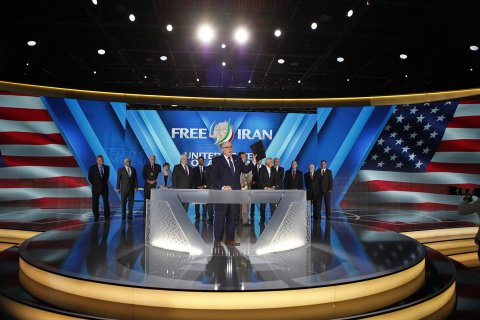
According to European authorities, Iran schemed to place a powerful bomb amid the attendees. The plot was discovered when German authorities arrested Assadollah Asadi, an Iranian accredited as a diplomat in Vienna. They said Asadi had delivered 500 grams of the powerful explosive TATP to two Iranian-born Belgians in Antwerp. Another three Iranian-born suspects linked to the plot were arrested in France. Iran's spokesman at the United Nations denied having anything to do with the plot and suggested it was a so-called false flag operation by the MEK itself or Israel to discredit Iran, but in early February European intelligence officials said they had dug up text messages or chat logs between Asadi and Tehran about the plot.
Iran was reaching into the United States as well. In August, the Justice Department charged two California men—one an Iranian citizen with permanent residence status in the U.S., the other with dual citizenship—on charges of conspiring to spy on and infiltrate the MEK at events in New York and Washington. The FBI also said the men scouted Jewish targets, including Rohr Chabad House, a student center at the University of Chicago. Campus Jewish groups have functioned as support groups for Israel's hard-line government. But Iran's main enemy remains the MEK. Some experts say Tehran has established sleeper cells in the U.S., Europe and Persian Gulf countries to assault such targets should war break out.
Iran "has a crazy obsession" with the MEK that is "divorced from reality," says Bruce Hoffman, a leading longtime terrorism expert at Georgetown University's Edmund A. Walsh School of Foreign Service. It's "a subversive threat, but so are other groups," he tells Newsweek. In fact, according to Muhammad Sahimi, an Iran expert at the University of Southern California, the Trump administration has been throwing its support behind a wide array of anti-regime personalities and organizations, from Iranian Kurds to ultra-right student groups to monarchists, personified in Reza Pahlevi, the exiled son of the late shah, who lives in suburban Washington, D.C. But Iran's prime target seems to be the MEK.
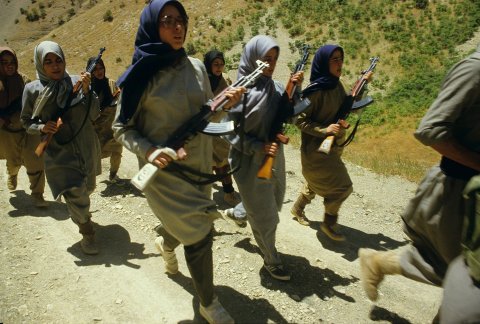
It's somewhat bizarre to Luis Rueda, a retired 28-year CIA veteran with deep Middle East experience. The MEK "has no support inside Iran—everybody views them as nutjobs." But the Trump administration's backing of the organization, which is loathed inside Iran because it took Iraq's side in the bitter Iran-Iraq War, has no doubt given the regime pause. "They're worried that we, Israel and Saudi Arabia are using the MEK to help destabilize Iran and pumping them money," Rueda tells Newsweek.
The IRGC was also fingered in what would have been a spectacular bombing in the heart of Washington, D.C. In 2011, the U.S. busted a plot to assassinate then–Saudi Ambassador Adel al-Jubeir at the fashionable Café Milano, a plush Georgetown restaurant frequented by prominent U.S. and foreign officials, lobbyists and journalists. Manssor Arbabsiar, a Texan with dual Iranian and U.S. citizenship, was arrested and eventually pleaded guilty to organizing the plot at the request of a cousin who worked for the IRGC's Quds Force, its paramilitary arm. The plot unraveled early on, when Arbabsiar hired a Mexican hit man who turned out to be an undercover informant for the U.S. Drug Enforcement Administration.
The Milano plot puzzles some. Nuclear talks were in full bloom. A bombing—killing scores of the capital's elites, as well as al-Jubeir—would have wrecked the negotiations. One party interested in derailing them: hard-liners in the IRGC, which "would like nothing more than to create greater tension and mistrust between the West and Iran," Rueda says.
Had the White House been able to pin the plot on Iranian leaders, its response "would've almost certainly been kinetic"—a military strike, says a senior former Obama administration national security official, asking for anonymity in exchange for discussing such a sensitive issue.
Like America's other major adversaries, the Iranians engage in stealthy cyberoperations as well, according to the latest annual report on worldwide threats from the Office of National Intelligence. Six years ago, the Justice Department charged last March, hackers connected to the IRGC stole huge amounts of academic data and intellectual property from 144 U.S. universities and 176 universities in 21 other countries in what it called one of the largest state-sponsored hacks ever prosecuted. According to the Rand Corp., an independent research organization with close ties to U.S. defense agencies, Iranian hackers have also penetrated "the unclassified Navy-Marine Corps Internet," as well as U.S. bank sites and the computers of oil giant Saudi Aramco and Las Vegas Sands, the casino company owned by Sheldon Adelson, a major Republican donor and pro-Israel hawk.
Then, in late November, the Justice Department indicted two Iranians for a series of ransomware attacks on the computer systems of Atlanta and Newark, New Jersey, as well as some 200 other targets, including hospitals and health care agencies. The accused perpetrators remain at large.
Iran denied responsibility for these and the earlier attacks, which may well have been retaliation for the infamous Stuxnet virus, a joint U.S.-Israeli operation that caused thousands of centrifuges to spin out of control at its Natanz nuclear facility beginning around 2009. Since then, Iran has discovered at least three more viruses attacking its systems.
Tit for Tat
Iran's go-to argument: You started it. To be sure, the CIA has sought to penetrate and destabilize the regime from the first days of the revolution. During the 1979–1980 hostage crisis, the CIA's late master of disguise, Tony Mendez, slipped into Iran to rescue six American diplomats, in an operation later dramatized in the movie Argo. But what's known of the agency's record has mostly been splotched with spectacular failures.
By 1989, "virtually the entire U.S. intelligence apparatus in Iran had been detected and successfully disrupted by the Iranians," according to a 2007 account by veteran regime-watcher Mahan Abedin, director of the research group Dysart Consulting. "U.S. incompetence—as opposed to Iranian prowess—was the chief factor in the unraveling of these networks."
Then, between 2009 and 2013, dozens of CIA sources were caught and executed in Iran (and China) due to a lapse in the agency's clandestine communications with agents, according to Yahoo News. Yet another flap erupted in 2011, when Iran announced the arrest of 12 alleged CIA spies. The disaster was caused by the agency "operating a lower threshold of quality control in terms of agent recruitment and management," Abedin wrote at the time.
Then there was Operation Merlin, a botched effort during the Clinton administration to provide Iran with a doctored design for a component of a nuclear weapon, ostensibly to sidetrack its nuke program. Instead, it may have accelerated it, according to State of War: The Secret History of the CIA and the Bush Administration, a 2006 book by former New York Times reporter James Risen.
And so it goes: One side whacking the other with no end in sight. The Trump administration has made ever more bellicose noises about squeezing Iran further, citing the Islamic republic's deployment of rockets and the Quds Force in Syria, its covert support of fellow-Shiite Houthi rebels in Yemen and its recent ballistic missile tests. On January 13, The Wall Street Journal revealed that Bolton had asked the Pentagon to draw up a list of options for attacking Iran. "It definitely rattled people," a former senior administration told the Journal. The same day, Axios reported that in 2017, "Trump repeatedly asked his national security team for plans to blow up Iranian 'fast boats' in the Persian Gulf." The revelations drew condemnation from the foreign policy establishment, but the leaks may well have been deliberate, to rattle Iran further.
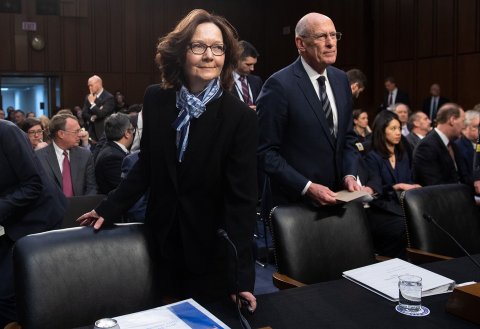
Trump should keep up the pressure, says Norman Roule, a 34-year CIA veteran, who helmed U.S. intelligence operations and policies on Iran from 2008 to his retirement in 2017. The West's response has been "pretty tepid," he maintains. Tightening sanctions on Iran is good, he tells Newsweek, and he applauds Germany's recent decision to revoke landing rights for Iran's Mahan Air on suspicion that the airline has been used for terrorist activities. But, he argues, the U.S. and its allies must go further. "Although military action should always be the last option," he says, "Tehran must understand that its actions have consequences."
A military strike doesn't seem in the cards, at least for now—unless Trump wants another rupture with the NATO alliance. While the allies have voiced deep annoyance with Iranian plots, they are simultaneously struggling to hold the nuclear accord together without the United States, going so far as to set up an alternative payment system to evade the new U.S. sanctions and trade with Tehran. In the face of threats from the Trump administration, its prospects are uncertain.
Meanwhile, Secretary of State Pompeo spent much of January barnstorming across the Middle East to drum up support for expelling "every last Iranian boot" from Syria (no matter that his boss had ordered a U.S. troop withdrawal that will dilute Washington's leverage against Tehran there). Pompeo also promoted a mid-February conference he organized in Poland dedicated to "making sure that Iran is not a destabilizing influence." European objections to Pompeo's hawkish message forced him to tone down the goals of the gathering.
But the administration is not just talking. The U.S. maintains eavesdropping facilities in Iraqi Kurdistan and has been running agents into Iran from there and Turkey, sources tell Newsweek. Seasoned observers also suspect that U.S. intelligence had a hand in the failure of two Iranian satellite missile launches early last year.
Freeman, who also served as assistant secretary of defense for international security affairs in the Clinton years, notes that since U.S. officials have virtually bragged about sabotaging North Korea's missile program, "one has to assume they're applying that to Iran." He also suspects the administration of using exile groups to conduct guerrilla operations inside Iran, as the U.S. did in the early years after the Chinese and Cuban revolutions—without success.
Such operations are "stupid," he says. The CIA rank-and-file aren't very enthusiastic about them either, an intelligence source tells Newsweek. "The feeling inside the organization is that Iran is a bad actor, but we shouldn't be close to war with these guys. It's not worth going to war."
A U.S. attack would chill some of Washington's Persian Gulf allies, prompt condemnation from the U.N. Security Council and even rally Iranian dissidents to the flag, says Emile Nakhleh, one of the CIA's top Middle East experts before retiring in 2006. "Invading Iran without considering the regional realities," he wrote in an analysis published by The Cipher Brief, a website close to the CIA, "is the height of insanity."
Iran just does not pose an existential threat to America, says the former top CIA operations officer. Even its ruthless operations abroad to eliminate its foes are defensive, he points out, not directed at the U.S.—whereas ISIS exhorts recruits to murder Americans and their allies wherever and however possible.
He blames Israel for hyping the nuclear issue. "Every year, one or another senior Israeli security official would trundle off to Washington and say, 'Iran is one year away from having a nuclear weapon.' And they kept doing this, until finally somebody said, 'You've been saying this for 10 fucking years, dude. How come they don't have a nuclear weapon?'"
He lets out a frustrated sigh, weary from so many mistaken and indecisive conflicts across the region. With no good end in sight with Iran, he fears that Israel will draw the Trump administration into its conflict with the country. "They are a potential clandestine threat to Saudi Arabia and the UAE, and a conventional threat to Israel," whose nuclear arsenal could obliterate Iran, he says. "But they couldn't get a battalion across the Gulf if their life depended on it."
Try this, he says: "Put yourselves in the Iranians' shoes and look at it how they look at things." Otherwise, we may well blunder into open conflict. "There's the potential for misreading on either side," he says. "There's gonna be an accident—somebody's gonna do something that is not intended to start a war, but it will start a war."









